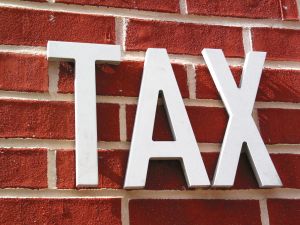 End of the year can be a busy time for business owners. In this episode of MissionBusinessPodcast.com Bernard Roesch shares tips you can use to make year end accounting and taxes easier.
End of the year can be a busy time for business owners. In this episode of MissionBusinessPodcast.com Bernard Roesch shares tips you can use to make year end accounting and taxes easier.
If you have any questions about this podcast episode, please feel free to contact us.
Podcast: Play in new window | Download
Subscribe: RSS
—
There are a number of things that need to be done towards the end of the year and after the close of the year for accounting and tax purposes. Below is an overview you can use as a guide.
The Last Quarter Of The Year
Before the year actually ends, there are a number of things that you should do to prepare the business for year-end.
Ensure bookkeeping is up-to-date – Although you should be doing your bookkeeping periodically, throughout the week or the month, the reality is that many businesses’ records are not up-to-date.
- The last quarter of the year is a good time to make sure that your bookkeeping is brought back up-to-date so that tax time is made easier.
Forecast income or losses for tax planning – Before the end of the year, it’s important to review your accounting records to project whether you will have an income or a loss for the year.
- By knowing this in advance of the close of the year you can proactively plan for tax season.
- For example, you can review your records with your accountant or tax adviser and identify areas where you can maximize tax savings.
There are a number of activities related to tax planning that may need to be done before the end of the year, so doing this process in the last quarter of the year rather than after the close of the year is important.
After The End Of The Year
While a number of things need to be done before the close of the year, January is a good time to finish the rest of the items that need to be done for tax season.
Finish bookkeeping for the year – Again, keeping your books up-to-date is important.
- January is a good time to make sure that all of your bookkeeping records are completely updated for the prior year as these will be needed for tax season.
Check your projections versus actual numbers – Above, Bernard recommended projecting income or losses for the year.
- In January, you should use your bookkeeping records to identify the actual income or loss, so that it can be used as part of the tax planning process.
File your 1099s, W-2s, payroll reports, etc – Depending on your workforce, there are a number of forms you may need to file at the start of the year for the prior year’s employee or contractor activity.
- 1099s and W2s can be generated within QuickBooks or third party systems using QuickBooks data.
Prepare for tax filing – Work with your accountant to identify specifically what will be needed to file taxes.
- This information can be compiled using QuickBooks including specific QuickBooks reports, which will make the preparation process easier.
By focusing on these activities immediately at the start of the year, you can make tax season easier.
Next Steps For Year-End Planning
If you need support preparing for year-end and getting proper procedures and accounting routines in place for your business, contact Bernard today. You can also visit MissionBusinessPodcast.com for more insights that Bernard has been sharing with us in the previous episodes.
[Image: http://www.freeimages.com/photo/169849]
Podcast: Play in new window | Download
Subscribe: RSS
